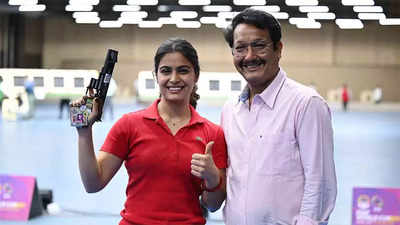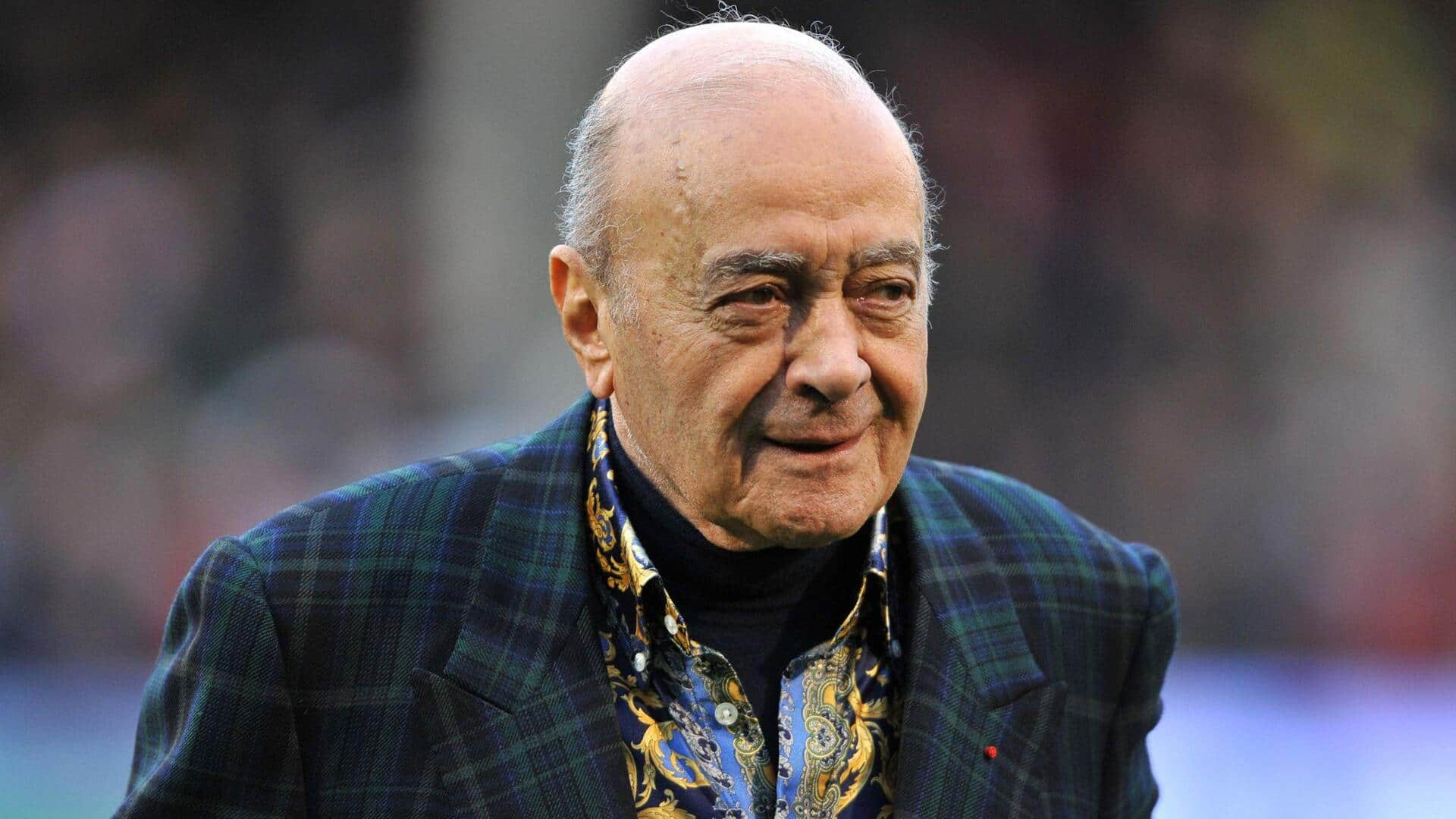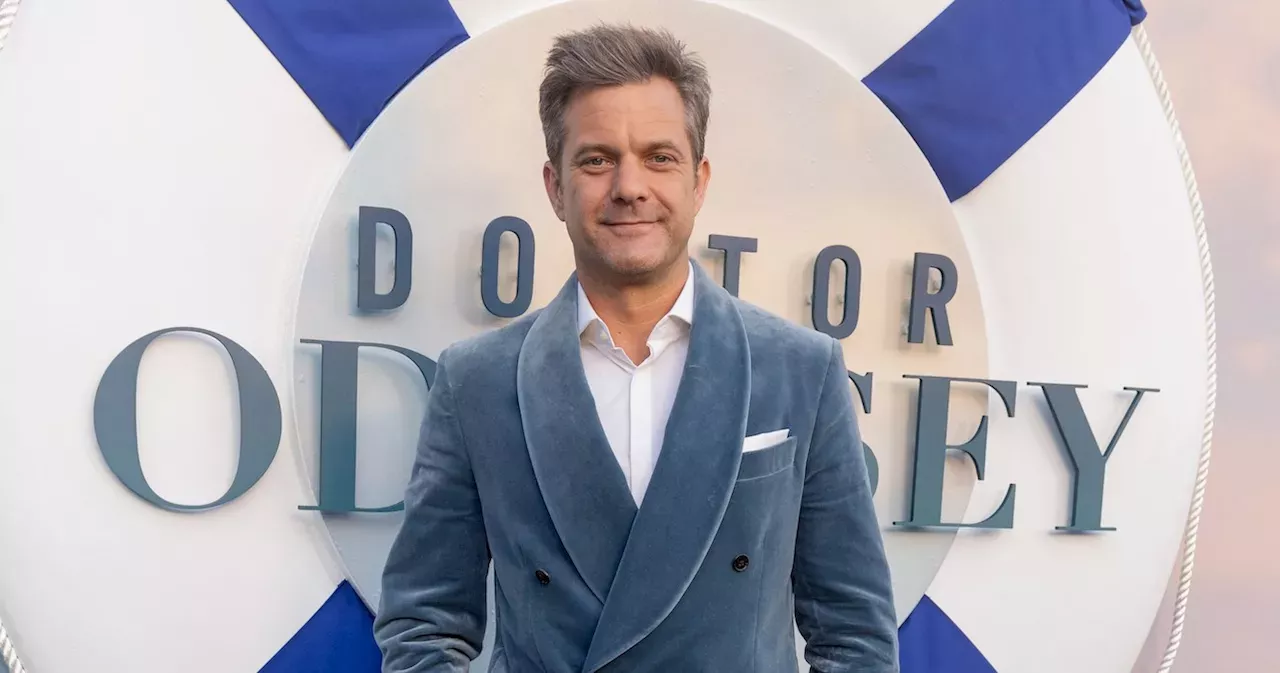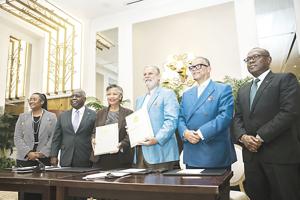NEW DELHI: Olympic medallist in shooting Vijay Kumar believes both national and personal coaches have an equal impact on an athlete's development, despite the ongoing controversy about their respective roles as the Paris Games draw near. According to Vijay, there is nothing wrong with the decision made by a number of Indian sportsmen to hire personal trainers in Paris, and they should be given the appropriate "weightage". India's pistol-shooting medal contender Manu Bhaker has chosen to practice with pistol icon Jaspal Rana in Paris, while rifle marksman Aishwary Pratap Singh Tomar receives training from former Olympian Joydeep Karmakar, even though the veteran hasn't traveled with his ward to the Games.
Athletes pursuing Olympic dreams in several other disciplines are also receiving guidance from personal coaches. In 2012, Vijay emerged as a surprising medal winner in the rapid-fire pistol event in London, surpassing the likes of Abhinav Bindra and Gagan Narang. He stated that personal coaches ought to be given the credit they deserve, as they have been instrumental in elevating the athlete to this caliber.

"Well, it's a complicated issue. Personal coaches should also get due weightage. Suppose I become a national coach some day, the shooter who comes to me, he would have been trained by someone to come up to that level by a personal coach," Vijay, an ex-serviceman now serving as DSP with Himachal Police, told PTI.
"So, the contribution of both the coaches is equal. The national coaches give that extra push..
. that 1-2 point bump in scores, how to handle pressure in international competition," said Vijay, who got enrolled in the Army early and was able to harness his talent in shooting to bring several accolades for the country. The 38-year-old, though, believes that the shooting federation ought to select coaches who have strong resumes and who have dealt with difficult circumstances in some of the world's most difficult tournaments.
"The federation should only appoint those coaches who have performed at the international level and won medals, so they can teach their wards how to handle those circumstances, what thoughts to keep in mind while shooting or relaxing, the techniques to follow," added Vijay. He believes that the Indian shooting team 's preparations have been far from ideal and that, six months before to the historic event, a clear plan should have been in place for shooters heading to Paris. "Observing from the outside, I feel it is the planning of players in the last six months where we are lacking.
The federation, I feel, should have had a crystal clear roadmap on what all competitions the shooters should take part in and the kind of training they should get and under whom. "So the focus should have been on that. The last six months the focus should be on how to make the players more focused, how much to train them, how much foreign exposure needs to be given, all that needs to be worked to the 'T'," he added.
"This year also, I've heard that the team was announced three (two) months before the Olympics. The trials were very late and the team announcement too was late. This exercise should have been completed in January-February, to be very frank," he added.
"The federations policy to have Olympic Selection Trials was fair but the execution was a bit late. The process should have been completed 2-3 months before it actually happened. The last 5-6 months (before Olympics) are crucial.
I must say, if the competition at the Olympics is in July-end, then January or maximum February the trials should have ended. Here trials were going on till April-end I suppose." According to Vijay, the crew ought to have had a month off before starting their demanding specialized training.
Unfortunately, Indian shooters were not afforded that luxury because the Olympic Selection Trials were held later than expected and the squad was announced later than expected. "The (federation) should have been given proper rest to the shooter of about a month and then rigorous training should have started after that, plus foreign exposure, plus technical training. That would have been ideal as per my understanding," he added.
Vijay says he isn't entirely convinced about the significance of fitness and mental trainers, even though they are now an essential component of any athlete competing in large international tournaments. "Even today, I am 50:50 convinced that there should be fitness trainer and mental trainer. No doubt these things help, but if your upbringing is in a particular environment, it gives you that competitive edge.
That was given to me by the Army, my family upbringing. "You cannot say you can teach (mental training) to someone at 20 or 30 years of age, because the environment a kid grows up in has a profound effect on his mind. All these things weren't there when I was shooting.
.. the Army atmosphere was good and had I good players for company because of which I excelled.
"We imbibed everything our coaches told us with a clear mind. We blindly followed them. For me it was Army coach Pavel Smirnov and other senior coaches.
Although trainers and coaches can guide someone to a certain extent, Vijay believes that his growth as a shooter was aided by spending time with some of the top shooters at the Army Marksmanship Unit in Mhow. "Pemba Tamang, Jitu Rai..
. it gives you inspiration and also gives you a push that others are doing well, so you don't go into that relaxed zone. So, good players are a must for your growth.
".



















